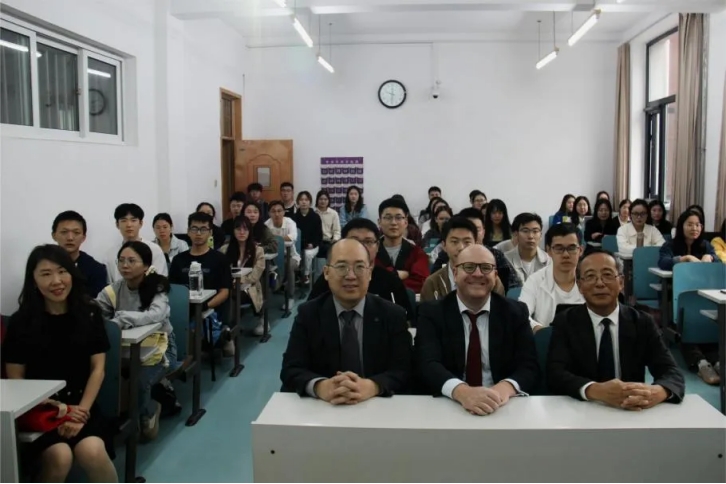On September 27, 2024, the School of Juris Master successfully held an expert lecture titled "The Person in Civil Law - Challenges in the Era of Artificial Intelligence" in Room 210 of Duansheng Building, Changping Campus. The keynote speaker was Professor Stefano Porcelli from the School of Law, University of Brescia, Italy. Professor Wensheng Han, Party Secretary of the School of Juris Master, delivered opening remarks, and Professor Yuanjian Zhai, Deputy Director of the Academic Affairs Office and a scholar at the Institute of Comparative Law, acted as the discussant. Professor Qian Tao chaired the event. The lecture was attended by first-year students from the School of Juris Master.
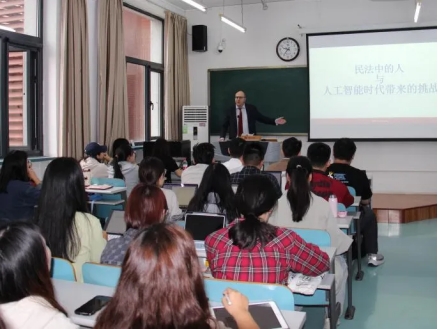
At the beginning of the lecture, Professor Qian Tao introduced the lecture’s theme and the attending guests, extending a warm welcome on behalf of the School of Juris Master.
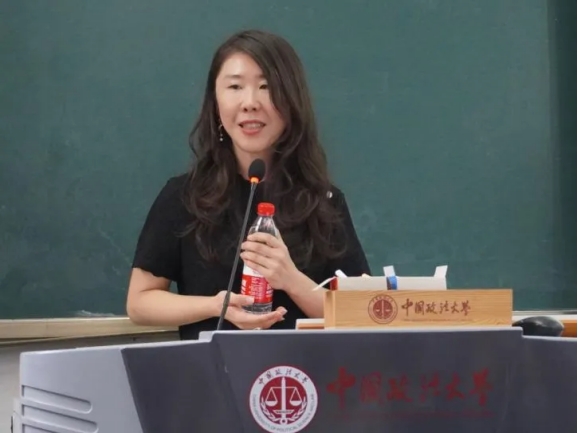
Professor Wensheng Han delivered his opening remarks, warmly welcoming Professor Porcelli and introducing his and Professor Yuanjian Zhai's academic backgrounds and research achievements. He emphasized the profound impact of artificial intelligence (AI) on learning and work, particularly on the legal profession.
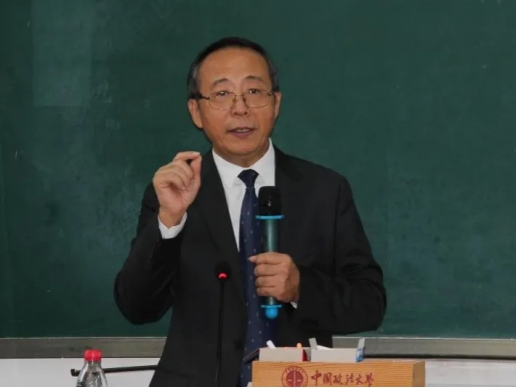
Professor Yuanjian Zhai reflected on his academic journey and collaborative research with Professor Porcelli, highlighting the importance and complexity of the lecture’s theme. He posed a central question: "How should we understand the concept of a ‘person’ in civil law? How does this differ from a living person, a person with legal personality, and the concept of a legal subject in civil law?" This question laid the foundation for the lecture’s core discussion and sparked great interest among the audience.

The lecture formally began with Professor Stefano Porcelli’s insights into the concept of a “person” in civil law and the challenges AI presents to its legal status. Drawing on his extensive research in Roman and civil law, he traced the evolution of the concept from tangible individuals to abstract legal entities, probing whether AI could be granted legal personality.
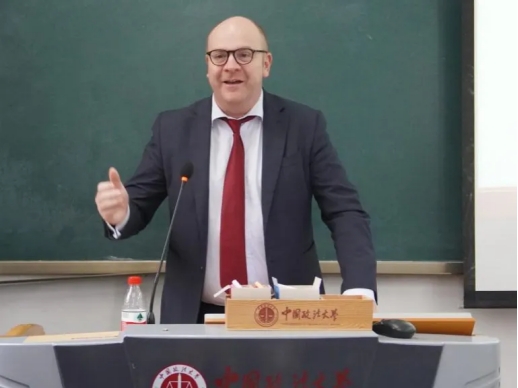
First, Professor Porcelli discussed the relationship between law and justice, underscoring its relevance to the human-AI relationship. He cited The Digest of Roman Law: “Law (ius) derives from justice (iustitia),” and distinguished between equality in the physical or mathematical sense (aequalis) and proportional equality, or fairness (aequum), which requires treating similar situations similarly and different situations differently.
He then explored the concept of “person” in Roman law, highlighting its progression from the biological notion (homo) to the legal framework. Roman jurists, such as Hermogenianus, declared that “all laws are made for humans,” and even slaves could attain Roman citizenship, affirming humans as the cornerstone of the legal system. During the Post-Classical Period, rare instances of associations or organizations acting externally began to emerge, albeit limited and lacking agency.
In the European Middle Ages, this paradigm shifted, notably with Sinibaldo de Fieschi (Pope Innocent IV), who first defined the Church as a “fictitious person.” This concept was later expanded by French scholar François Douaren. By the 17th century, German jurist Samuel Pufendorf further developed the notion of “moral persons” (persona moralis) within classical natural rights theory. In the late 18th century, the rise of subjectivism in natural law culminated in the Pandectist school’s conceptual jurisprudence, placing subjective legal subjects (subiectum iuris) at the center of the legal system, with subjective rights deemed essential to legal personality.
Professor Porcelli posed a critical question: Since legal persons are often treated as humans and afforded significant protections, should AI receive similar protections? He argued that the legal concept of a “person” was designed to address the attribution of legal consequences. For AI, this attribution must also determine responsibility for its actions. To address AI’s challenges effectively, we must recognize that AI fundamentally differs from humans and remains within the legal category of “objects,” requiring a tailored legal framework.
Professor Qian Qian followed with her reflections titled “The Person in Civil Law and the Author in Copyright Law.” She noted that AI has become a transformative force across industries, disrupting traditional author systems and the attribution of authorship and subject matter in copyright law. She analyzed the implications for natural authors, collaborative authorship, and corporate authorship, referencing three landmark Chinese cases involving AI-generated content. She also discussed how digital humans and virtual idols impact performers’ rights under copyright law.
During the interactive session, students actively engaged with the speakers. Addressing questions, Professor Porcelli reiterated that AI is not a “person” in civil law. He emphasized that all rights are inherently human-centric, as encapsulated in the Roman maxim: “All laws are made for humans.” Professor Qian Tao added that works protected under copyright law must reflect human originality and creativity. Whether AI-generated content qualifies as a “work” requires case-specific analysis to determine its human contribution.
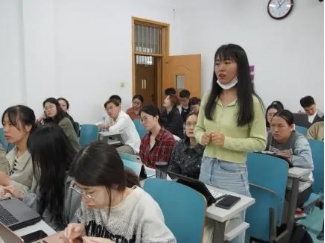
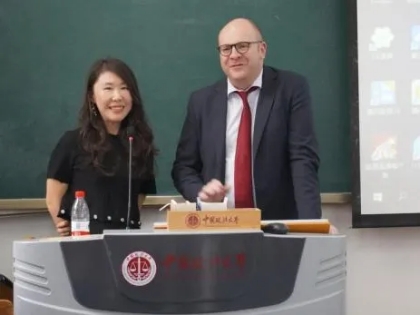
Finally, Professor Qian Tao summarized the lecture, expressing gratitude to Professor Stefano Porcelli for his insightful presentation, which offered students new perspectives on the study of “persons” in civil law.
The lecture ended with warm applause.
